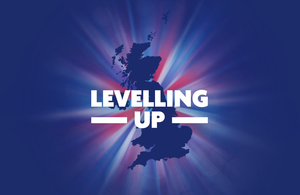The government have launched their Levelling Up White Paper with the aim setting out a plan to transform the UK by spreading opportunity and prosperity to all parts of it.
We will bring you our views on the plans throughout the day.
What are the headlines from the Levelling Up White Paper?
- Twelve bold national levelling up missions, given status in law, will shift government focus and resources to Britain’s forgotten communities throughout 2020s
- Biggest shift of power from Whitehall to local leaders in modern times announced – every part of England to get ‘London style’ powers and mayor if they wish to
- Starting gun fired on decade-long project to level up Britain, with radical new policies announced across the board
- Domestic public investment in Research & Development to increase by at least 40% across the North, Midlands, South West, Scotland, Wales, and Northern Ireland
By 2030, other missions will see:
- the rest of the country’s local public transport systems becoming much closer to London standards
- the large majority of the country gain access to 5G broadband
- illiteracy and innumeracy in primary school leavers effectively eliminated – focussing the government’s education efforts on the most disadvantaged parts of the country
The 12 Missions to Level Up the UK
1. By 2030, pay, employment and productivity will have risen in every area of the UK, with each containing a globally competitive city, with the gap between the top performing and other areas closing.
2. By 2030, domestic public investment in Research & Development outside the Greater South East will increase by at least 40% and at least one third over the Spending Review period, with that additional government funding seeking to leverage at least twice as much private sector investment over the long term to stimulate innovation and productivity growth.
3. By 2030, local public transport connectivity across the country will be significantly closer to the standards of London, with improved services, simpler fares and integrated ticketing.
4. By 2030, the UK will have nationwide gigabit-capable broadband and 4G coverage, with 5G coverage for the majority of the population.
5. By 2030, the number of primary school children achieving the expected standard in reading, writing and maths will have significantly increased. In England, this will mean 90% of children will achieve the expected standard, and the percentage of children meeting the expected standard in the worst performing areas will have increased by over a third.
6. By 2030, the number of people successfully completing high-quality skills training will have significantly increased in every area of the UK. In England, this will lead to 200,000 more people successfully completing high-quality skills training annually, driven by 80,000 more people completing courses in the lowest skilled areas.
7. By 2030, the gap in Healthy Life Expectancy (HLE) between local areas where it is highest and lowest will have narrowed, and by 2035 HLE will rise by 5 years.
8. By 2030, well-being will have improved in every area of the UK, with the gap between top performing and other areas closing.
9. By 2030, pride in place, such as people’s satisfaction with their town centre and engagement in local culture and community, will have risen in every area of the UK, with the gap between the top performing and other areas closing.
10. By 2030, renters will have a secure path to ownership with the number of first-time buyers increasing in all areas; and the government’s ambition is for the number of non-decent rented homes to have fallen by 50%, with the biggest improvements in the lowest performing areas.
11. By 2030, homicide, serious violence, and neighbourhood crime will have fallen, focused on the worst-affected areas.
12. By 2030, every part of England that wants one will have a devolution deal with powers at or approaching the highest level of devolution and a simplified, long-term funding settlement.












